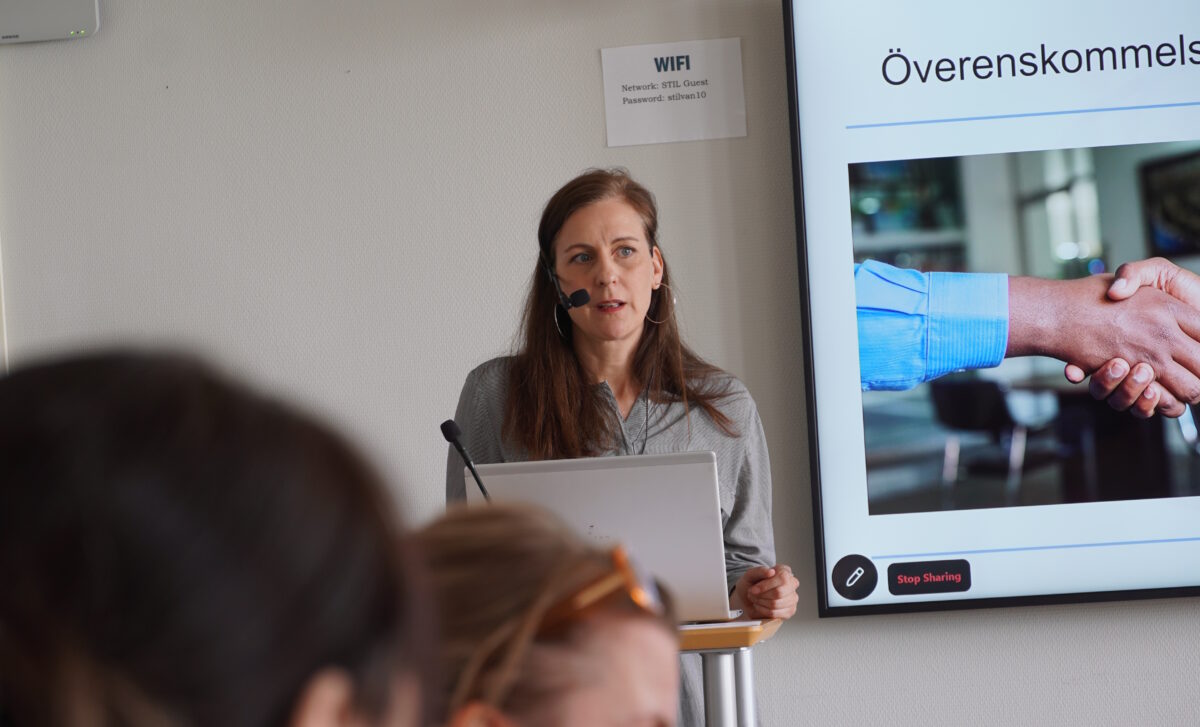For two day the project team and some of the project participants had training in Supported Employment.
Misa Kompetens held the course and the instructors were Liselotte Lindberg (pictured) and Mårten Bjurströmer.
Supported Employment means that a jobseeker receives personal support to be able to get and keep a job. For this project, the idea is to better support the participants’ recruitment process, according to Tiina Nummi-Södergren, project manager in Disabled Refugees Welcome – The Right to Work, DRW-RTA.
DRW-RTA has worked closely with Misa, a member of the project reference group, that has offered to train us in Supported Employment tailored to the purpose of the project.
“More support during the recruitment process”
The idea of the training is that the project will provide more support during the participants’ recruitment process,” says Tiina Nummi-Södergren.
“Now the idea is that we will participate in job searches, meet employers and be present at meetings with job agencies.
The Supported Employment method includes keeping in touch with employers once someone has found a job. The project intends to assist with this.
“Yes, we have understood the importance of that need, partly through the training but also through our advice. Often people are hired for a probationary period and complications can arise that sometimes mean that there is no continuation, something that we may be able to handle and prevent if we are involved.
“Ask other questions”
The project’s target group is admittedly somewhat different from the target groups Misa usually has, but Tiina does not think that will be an obstacle.
“You have to ask some other questions. When it comes to the people in our target group, the question of how far they have come with the Swedish language can have an impact. Another is how far ahead they are in the “permit process”, and about what support and aids they receive for their disability, for example whether they have transport service or not. Another thing is that some of the people in our target group are educated, and then it becomes an important thing to have that education validated.
After the summer holidays, the work with Supported Employment will get started together with the project participants.
